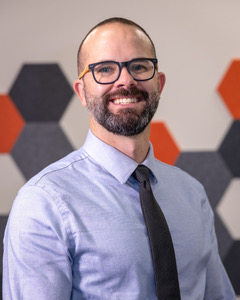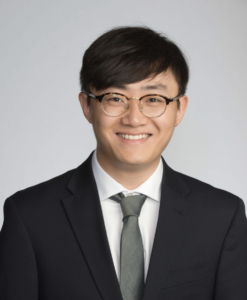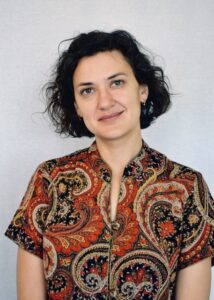
Wednesday, January 22, 2025, 4:00–5:30 p.m. (New York Time)
Immersive Technology in Foreign Language Education: Vision Pro, AR, VR, and AI
Brody Bluemel, Delaware State University
Registration: https://tinyurl.com/CALPERPD25
Slides: https://calper.la.psu.edu/wp-content/uploads/sites/21/2025/02/ImmersiveTechCALPER.pdf
Abstract:
Immersive technology for language education includes Artificial Intelligence (AI), Virtual Reality (VR), Augmented Reality (AR), experiential learning in the metaverse, and other interactive digital tools. The rapid development of these resources in recent years presents us with opportunities to rethink and innovate new approaches for language instruction. This presentation explores best practices and provides an overview of multiple immersive technology platforms and digital tools for language learning. Research demonstrates the efficacy of immersive technology in interactive communication; addressing topics of behaviors, affections, and beliefs; as well as in task-based instruction (Lin & Lan, 2015). The presentation expands upon the research by exploring the newest AI platforms and technologies such as Apple Vision Pro. An open-access digital book for educators that outlines how these resources can be leveraged in language education will be shared, inclusive of lesson plans, learning modules, and detailed explanations.
Bio:
Brody Bluemel is the Chairperson and Professor of Applied Linguistics in the Department of Languages & Literatures at Delaware State University. His research focuses on educational technology, bilingual education, and dual-language immersion. His most recent project was to develop a digital instructional resource book for educators for the implementation of immersive technology in foreign language education. He is currently developing immersive language learning experiences using Apple’s Vision Pro and other VR headsets. His teaching experience includes intercultural communication, Chinese, German, and TESOL.

Wednesday, February 12, 2025, 4:00–5:30 p.m. (New York Time)
Advancing Sustainable Translanguaging Pedagogy in Chinese Immersion Classrooms
Zhongfeng Tian, Rutgers University–Newark
Registration: https://tinyurl.com/CALPERPD25
Abstract:
Translanguaging articulates a paradigmatic shift in how we think about language(s) and how we work with bilingual students. It advocates for a more fluid and dynamic approach to teaching in/of language to support children’s emergent bi/multilingualism and to challenge monolingual practices in bilingual education. While translanguaging approaches have been widely embraced by researchers and teachers for their educational potential, some are cautious about its overly transformative promise in bilingual education contexts, particularly those involving languages of differential socio-political statuses, values, and vulnerability. Drawing from my research in Chinese-English dual language immersion programs in the U.S., I demonstrate how translanguaging spaces can be strategically and purposefully created and orchestrated to support students in content, language, and identity development, while also protecting minoritized languages. I conclude by recommending sustainable translanguaging pedagogy through language coordination at macro, meso, and micro levels to reframe language policy and practice in bilingual education settings.
Bio:
Zhongfeng Tian (田中锋), Ph.D. is Assistant Professor of Bilingual Education in the Department of Urban Education at Rutgers University–Newark. Theoretically grounded in translanguaging, his research centers on working with teachers to provide bi/multilingual students with equitable and inclusive learning environments in ESL and dual language immersion contexts. Dr. Tian has published five books (with Multilingual Matters, Springer, Routledge and De Gruyter Mouton), eight special issues and over 30 peer-reviewed journal articles at e.g., TESOL Quarterly, System, International Journal of Bilingual Education and Bilingualism, Journal of Multilingual and Multicultural Development, and Journal of Language, Identity & Education. He has received an Early Career Award from ACTFL Research SIG in recognition of his scholarly contributions to Chinese-English bilingual education.

Wednesday, March 26, 2025, 4:00–5:30 p.m. (New York Time)
Comparing Engagement and Motivation in Augmented Reality Interactive Reading and Paper-Based Reading
Jayoung Song, Penn State University
Registration: https://tinyurl.com/CALPERPD25
Abstract:
This presentation will share research findings on the effects of augmented reality (AR) and print-based games on reading engagement in the context of foreign language learning. It will also showcase the design and development of a narrative-driven AR mobile game tailored for language education and explore its pedagogical implications.
Building on the principles of game-based and problem-based learning, this study examined the effects of an augmented reality (AR) mobile game and its printed counterpart on students’ reading engagement. To achieve this, a narrative-driven mystery AR mobile game was designed and implemented using the Analysis, Design, Development, Implementation, and Evaluation (ADDIE) framework. The participants included 33 undergraduate students learning Korean as a foreign language. Among them, 19 students played the AR version of the game, while 15 engaged with the printed version. Following the activities, both groups completed various assessments, including reading engagement surveys with Likert-scale items, adjective checklists, and interviews. The findings revealed that both groups displayed similar levels of behavioral, cognitive, and emotional reading engagement, as well as positive attitudes toward reading, with no statistically significant differences between the groups. However, the qualitative data highlighted variations in participants’ perceptions of each mode.
The presentation will discuss how immersive technologies, such as AR, can enhance engagement in foreign language education while highlighting the enduring value of traditional print-based methods.
Bio:
Jayoung Song is a Watz Early Career Professor and an Assistant Professor of Korean and Applied Linguistics at Penn State. Her research focuses on Korean applied linguistics, technology-enhanced language learning—particularly with virtual and augmented reality—intercultural communication, and second language reading.
She actively contributes to professional communities, serving as a reviewer for various academic journals and as a member of the editorial boards of Linguistic Research. Additionally, she serves on the Executive Board of the American Association of Teachers of Korean (AATK) for the 2022–2025 term.

Wednesday, April 9, 2025, 4:00–5:30 p.m. (New York Time)
Teaching and Learning of Spelling and Orthography in a Heritage Language Classroom: A Focus on Russian
Olesya Kisselev, University of South Carolina
Registration: https://tinyurl.com/CALPERPD25
Abstract:
In this talk, the participants will explore an under-researched area in heritage and second language development, that of spelling and orthographic skills. Heritage and second language learners alike experience systematic challenges in spelling and orthography, a learning challenge that has been documented for various target languages (i.e., Beaudrie, 2012; Carreira, 2002; Kagan & Dillon, 2001; Loewen, 2008; Pyun & Lee-Smith, 2011; inter alia). Analyzing non-standard patterns in spelling of words found in the writing of English-dominant heritage learners of Russian at the college level, the presenter will discuss Russian spelling and orthography as a specific learning problem, hypothesize on the potential causes and the underlying linguistic nature of errors, and then discuss a set of strategies for improved development of orthographic skills in a Russian language classroom. The presentation will be useful for all teachers working with heritage and second language learners of alphabetic languages.
Bio:
Dr. Olesya Kisselev is an assistant professor in the Department of Languages, Literatures and Cultures at the University of South Carolina, following her appointment as an assistant professor at the University of Texas at San Antonio, Department of Bicultural-Bilingual Studies (2018-2023), where she received many accolades for her research and teaching including the prestigious University Excellence Award: President’s Distinguished Achievement Award in Research Excellence.
Her primary research expertise lies in the area of corpus linguistics and discourse analysis, especially as they apply to the study of various aspects of bi/multilingualism and diasporic language practices, as well as second and heritage language development and maintenance. Her scholarly contributions include research papers, book chapters, and edited volumes on linguistic aspects of second and heritage languages and language pedagogy. Dr. Kisselev currently serves as the Co-Director for the Center for Advanced Language Proficiency Education and Research (CALPER) and the Director of the STARTALK Institute for Teachers: Proficiency-Based Pedagogy for Russian at the Middlebury College.